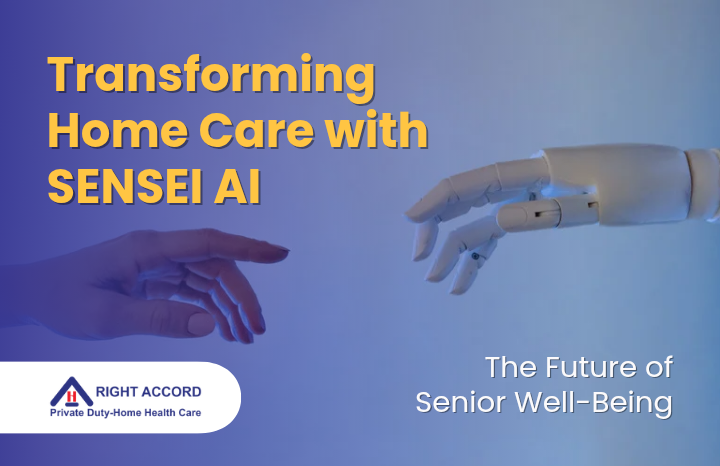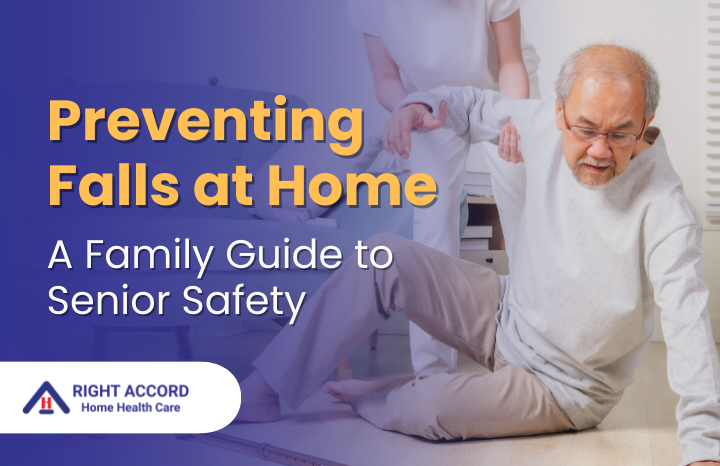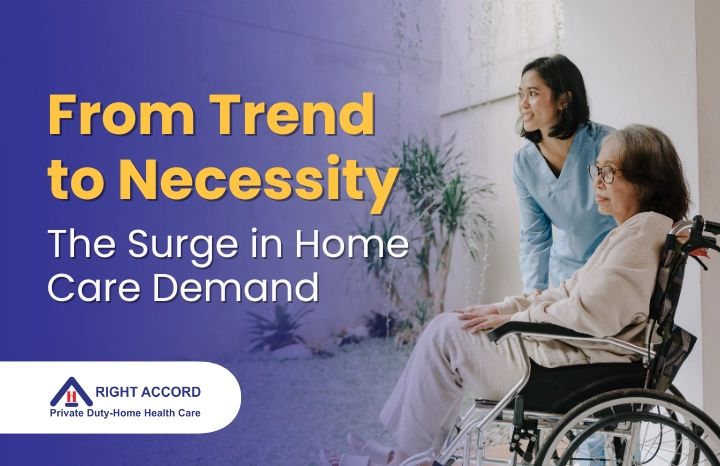· 5 min read
What Are Home Care, Private Duty Home and Senior Home Healthcare
The terms Home Care, Senior Home Health Care and Private Duty Home Care are very often confused with each other and used interchangeably by some people.
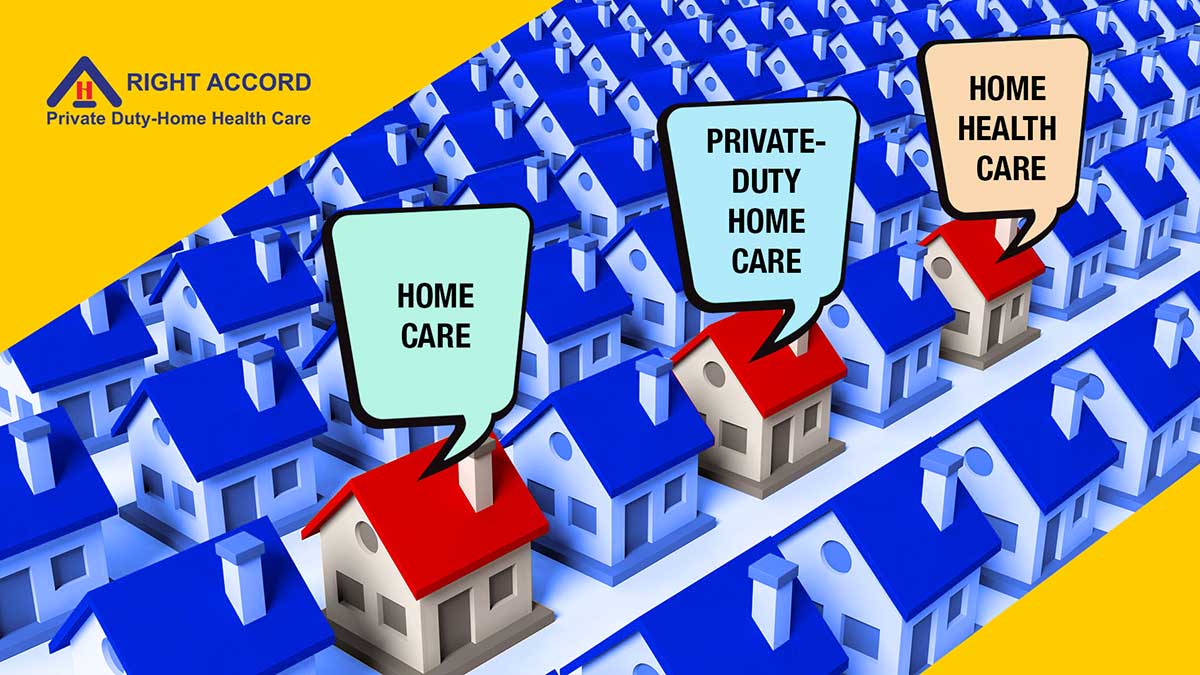
By: Rosemarie Tamunday Casanova
For people who are just starting to research care options for their aging parents, they may come across such terms as Home Health Care, Home Care, In-Home Care, Private Duty Home Care, etc.
This can understandably be quite confusing for people who have no prior experience on the topic.
The terms Home Care, Home Health Care and Private duty Home Care are very often confused with each other and used interchangeably by some people. But are they the same thing or are there differences between them?
For all purposes, Home Care is a broad term that is used in the United States and many parts of the world to indicate both medical and non-medical types of care in other words, skilled or non skilled care, generally aimed at providing care to the individual in their own home as opposed to institutionalized or residential care.
Under the Home Care umbrella, there are two categories:
- In-home care
- Home Health Care
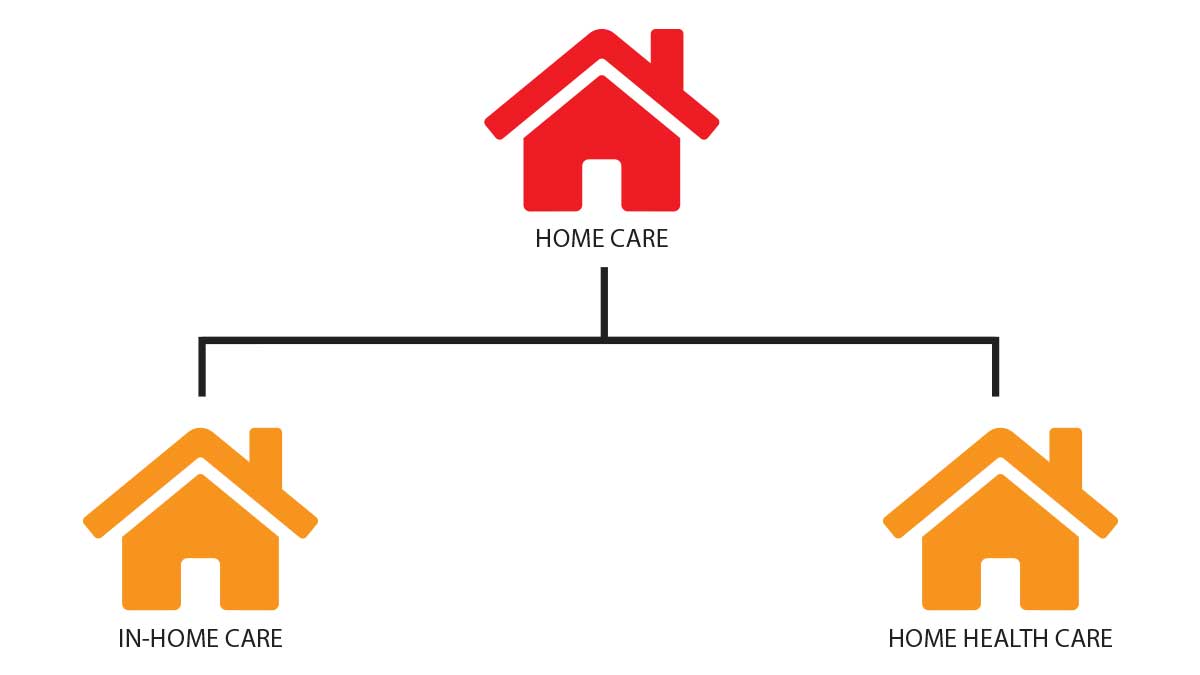
These two this may sound similar but are certainly different in terms of the types of services offered.
Even though some of their services may overlap, their major differences lie in the qualifications of their service providers and in the payment sources.
Having a good understanding of their differences would be very beneficial in your search for the right kind of care for your aging parents.
IN-HOME CARE
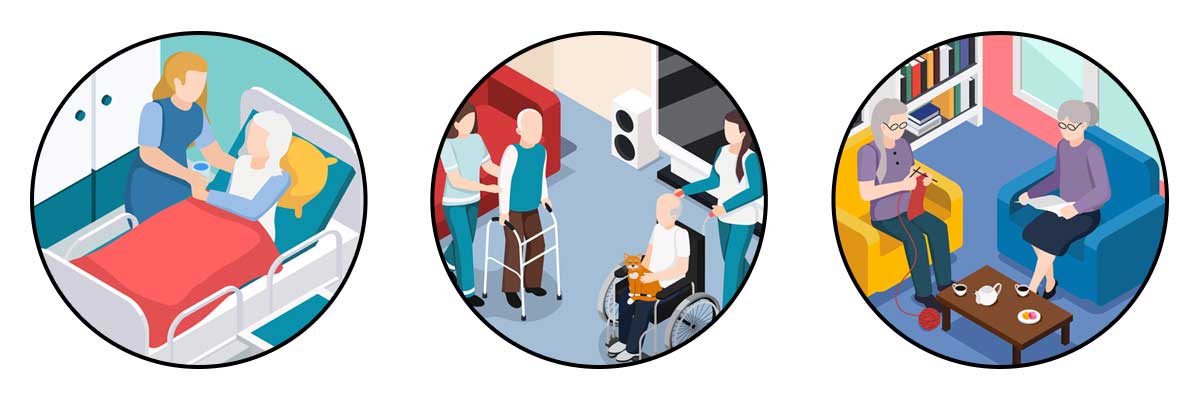
In-home care services are either skilled or non-skilled care that are essentially non medical in nature.
Such services exist with the aim of maintaining and sustaining the quality of life of the individual while allowing them enjoy their independence and dignity.
Their services are usually provided by non medical caregivers including certified nursing assistants (CNA) Home Health aides, or Personal Assistants, sometimes under supervision of a registered nurse.
These services offered typically do not need a doctor’s prescription and are paid for out-of-pocket or via the long-term care insurance.
This type of care is often referred to as Private Duty Home Care, alluding to the means of payment for such services which is usually a private arrangement (long-term care insurance, Veteran’s coverage, Out-of-pocket), as opposed to government funding such as Medicare or medicaid.
Some of the services offered by in home senior care include:
- Light housekeeping such as laundry grocery shopping etc. Companionship for provision of comfort as well as supervision.
- Transportation to keep up with appointments or for any other needs.
- Personal hygiene
- Assistance with activities of daily living (ADL)
- Grooming bathing, dressing, etc
- Basic hygiene and toileting
- Meal preparation
- Medication reminders
- Occupational and physical therapy
- Assistance with Exercise programs
- Respite services for caregivers
- Assistance with getting home after discharge and with hospital appointments
In-home care services can be provided on an intermittent basis, or for as long as 24 hours a day depending on the patient’s needs.
HOME HEALTH CARE
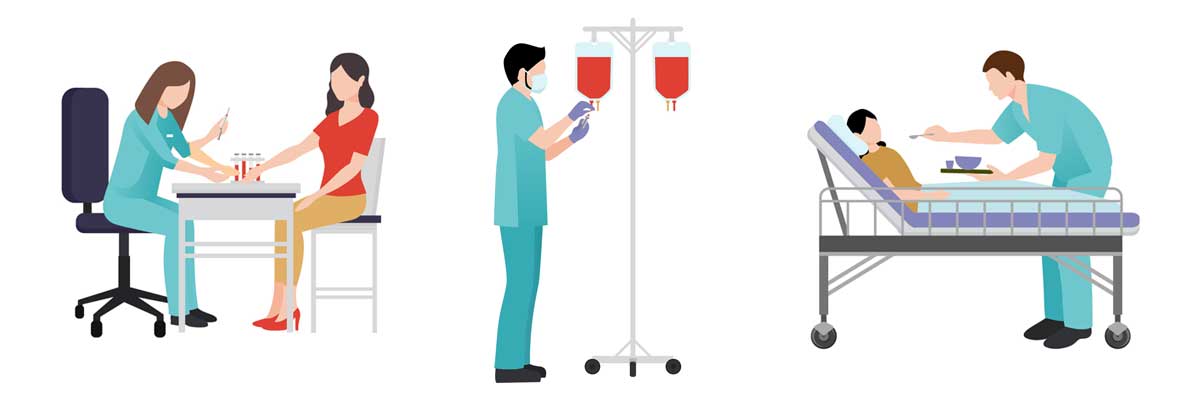
Home Health Care involves a varied range of professional nursing care which are typically rendered by licensed nurse practitioners (LPNs), registered nurses (RNs), or licensed vocational nurses.
Home Health Care Services are often needed in cases like post hospitalisation when the patient would still need some degree of assistance during recovery.
In cases like this, a doctor’s referral can be issued which allows the patient contract with any licensed Home Health Care Agency which would then arrange to have the appropriate caregiver sent to the patient.
They are also needed in the management of illness or injury in which case the patient has a medical condition or is recovering from an injury, or needing pain management or mental health services. In a lot of cases, the need for Home Health Care comes after that for home care. Care under this category can range from nursing care to more specialised medical services like laboratory workups.
Some of them also involve having doctors visit the patient at home to make a diagnosis and come up with a treatment plan. Also, a doctor may be invited periodically to review a patient’s health needs.
Some of the services which are covered by this type of care include:
- Medical case management usually by a registered nurse and involving a doctor who would draw up a management plan.
- Pain management
- Wound care and management
- Physical therapy
- Prescriptions administration and management
- Laboratory and imaging services such as blood and urine tests and x-rays
- Vital signs monitoring including blood pressure, heart rate, and temperature charting.
- Education of patient and caregivers
- Intravenous drug therapy
- Intravenous nutrition
- Assistance with Activities of daily living (ADL)
- Occupational / Speech therapy for patients who may require help with learning afresh how to improve their speech and also how to carry out their daily activities.
Medical social services which can provide counselling services and also help with finding relevant community resources for the individual’s quick recovery. In typical contrast to Home Care, Home Health Care Services usually are covered under government resources like Medicare and Medicaid while the farmer may be in some cases but are usually not.
As can be seen, there is some overlap between the services provided by each type of care. some patients may require the two types simultaneously at least for a period of time, for example during recovery from surgery.
For elderly individuals in particular, especially if they live alone and away from their families, there may be need for both home health care and private duty Home Care if they are just recovering from a serious illness or an accident. Whatever type of care is needed, having a good understanding of each type surely helps in the decision-making process.
